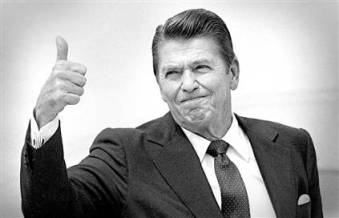
What if you could give especially powerful presentations?
That sounds like a worthy goal, right?
Sure, it does.
But if you’re like most of the 1.3 million English-speaking business school students worldwide, you’ve muttered I hate presentations more than once.
And you probably have issues with your business school and its treatment of presentations.
And that’s why you’re here.
Welcome to the world of especially powerful business presentations.
One in 1 Billion?
Of more than 1 billion websites worldwide, this is the only site devoted exclusively to business school presentations. I could be wrong about that, and I hope that I am.
But . . .
Even if this is a lonely outpost today, we know that as quickly as the online community responds to the needs of its users, that could change tomorrow.
I trust you’ll let me know, so that I can link to these nooks and crannies of the web that may hold secrets that we all need.

But right now, this instant, I do believe that this is it.
Think of this place as your Official College Guide to Business School Presentations.
And this place – everything about it – is designed to give you personal competitive advantage.
But . . .
What if you already feel reasonably confident, competent, and thoroughly satisfied with your presenting skills?
I congratulate you and at the same time encourage you. I encourage you to continue improving.
Discover a technique used by a popular speaker. Adopt a new stance you saw in a TED talk. Practice that incredible gesture your friend uses when he’s excited.
In short, recognize that presenting is a skill that can always be refined, always be improved.
Perhaps you’ll find a secret or two right here.
Don’t hate presentations!
I believe, and you may agree, that business school students need credible, brief, and direct resources on presenting – solid information and best practices, not vague generic “presentation principles” and certainly not “communication theory.”
In short, you want to know what works and why.
You want to know right from wrong, good from bad.
You want to know what is just opinion and what, if anything, is carved in stone.
You’ll find answers here to the most basic questions.
- What is this beast – the business presentation?
- How do I stand? Where do I stand?
- What do I say? How do I say it?
- How do I reduce 20 pages of analysis into a four-minute spiel that makes sense and that “gets it all in?”
- How should we assemble a group presentation? How do we orchestrate it?
- How do I pass the baton?
- Where do I begin, and how?
- How do I end my talk?
- What should I do with my hands?
- How do I conquer nervousness once and for all?
- How can I tell “what the professor wants?”
- How do I translate complicated material, such as a spreadsheet, to a PowerPoint slide so that it communicates instead of bores?
Centuries of Especially Powerful Presenting
Business School Presenting answers every one of these questions and many more that you haven’t even thought of yet. You may not like the answers.
You may disagree with the answers.
Fair enough.
Let a thousand presentation flowers bloom across the land. Listen, consider, pick and choose your pleasure. Or not.
But you should know that I offer here the distillation of 2,500 years of public speaking and presentation secrets, developed by masters of oratory and public speaking and refined in the forge of experience.
Folks who certainly did not hate presentations . . .
Cicero, Quintilian, Demosthenes, John Adams, Patrick Henry, Daniel Webster, Frederick Douglass, Abraham Lincoln, William Jennings Bryan, John Kennedy, Martin Luther King, Malcolm X, Ronald Reagan, Barack Obama – all find their places in the pantheon of the most powerful presenters of all time.
They all have drawn upon the eternal verities of presenting.
In turn, they have each contributed their own techniques to the body of wisdom. You find those verities here.

On the other side of things, let me hear your own presentation stories from your campus that illustrate challenges particular to your school and academic concentration.
The various subdisciplines in business – finance, marketing, accounting, human resources, and such like – have their special needs. And they are all tractable to the fundamental and advanced techniques of powerful presenting.
So think deep.
Consider the personal competitive advantage that can be yours when you develop especially powerful business presentation skills.
And learn not to hate presentations by consulting my book The Complete Guide to Business School Presenting.

